Community articles — Physics
Recent
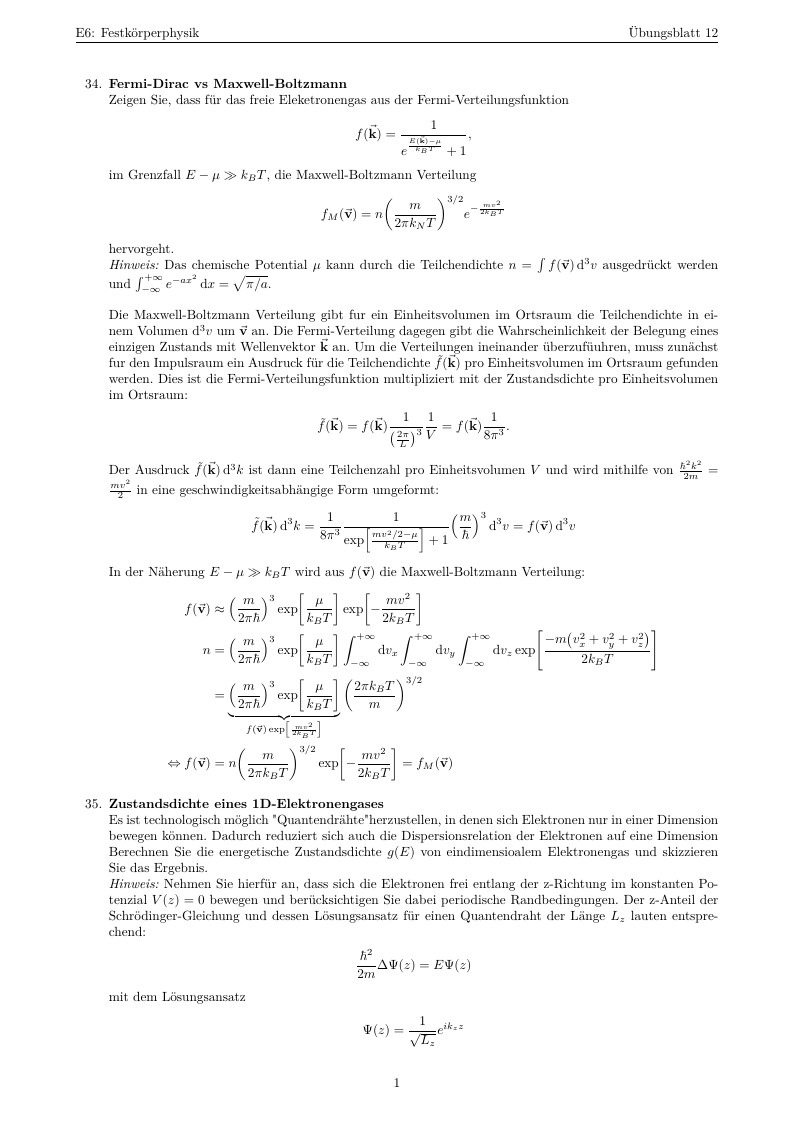
Experimentalphysik 6: Festkörperphysik
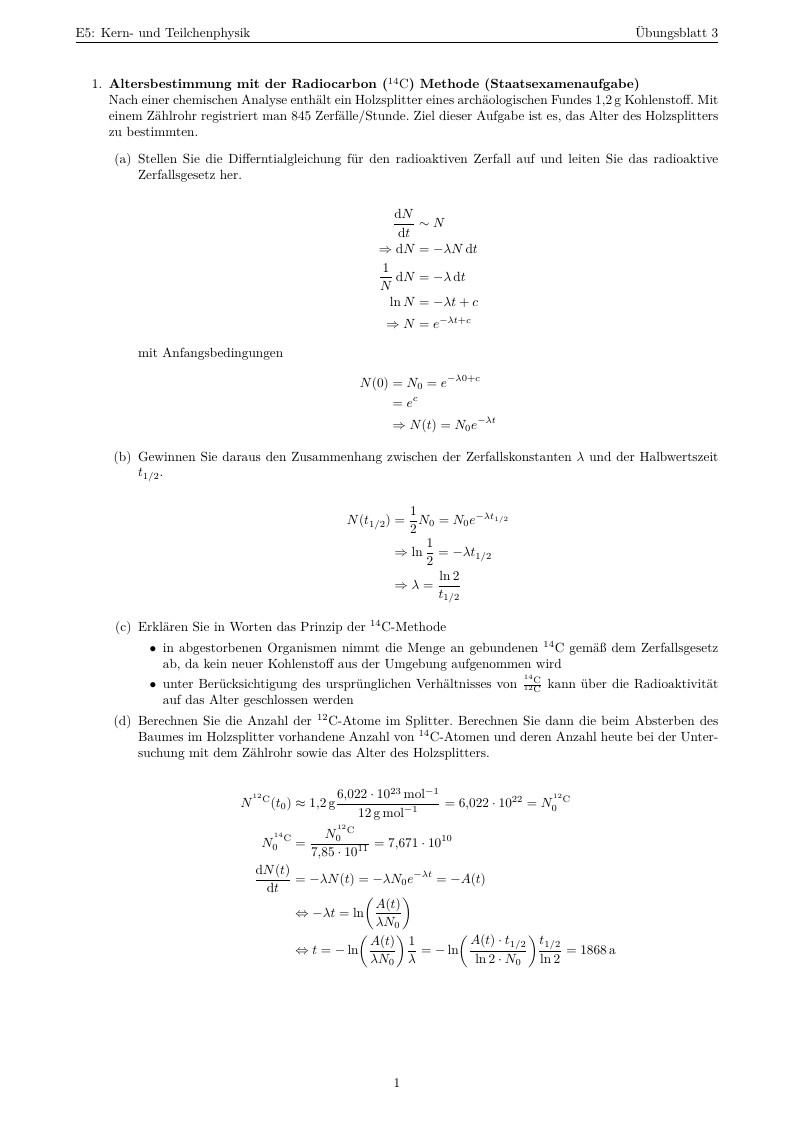
Experimentalphysik 5: Kern- und Teilchenphysik
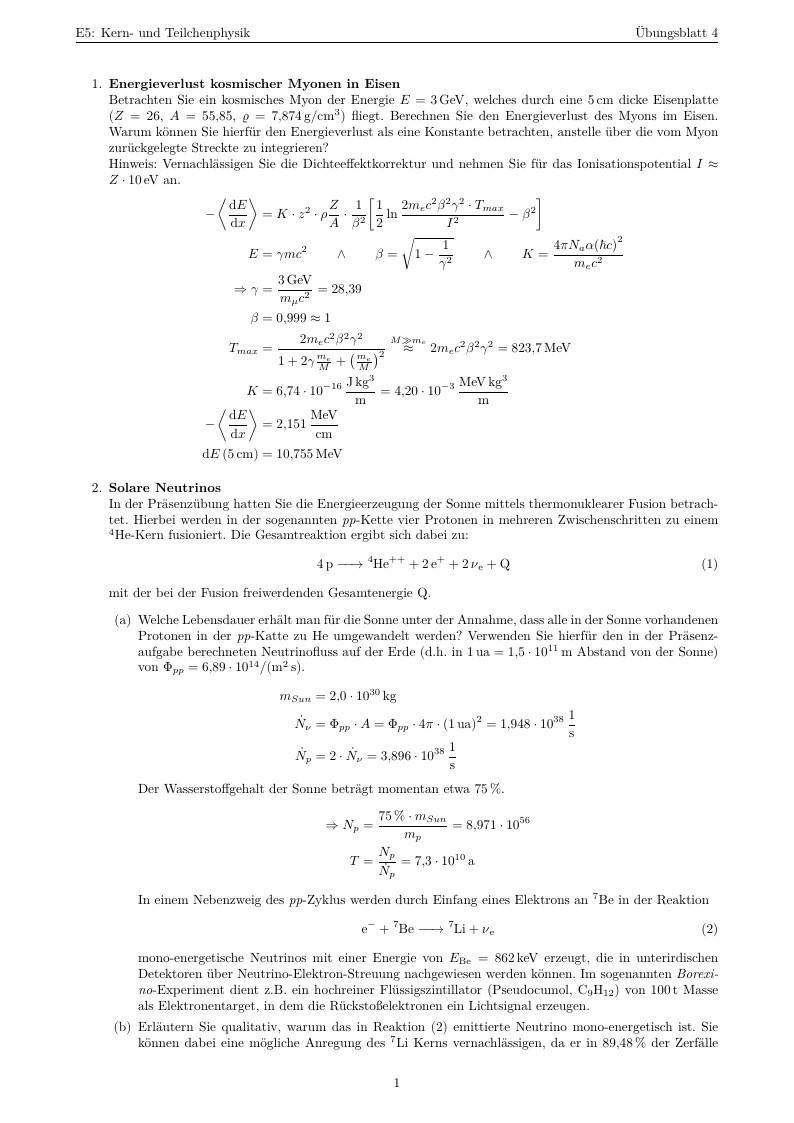
Experimentalphysik 5: Kern- und Teilchenphysik

Scientific investigation
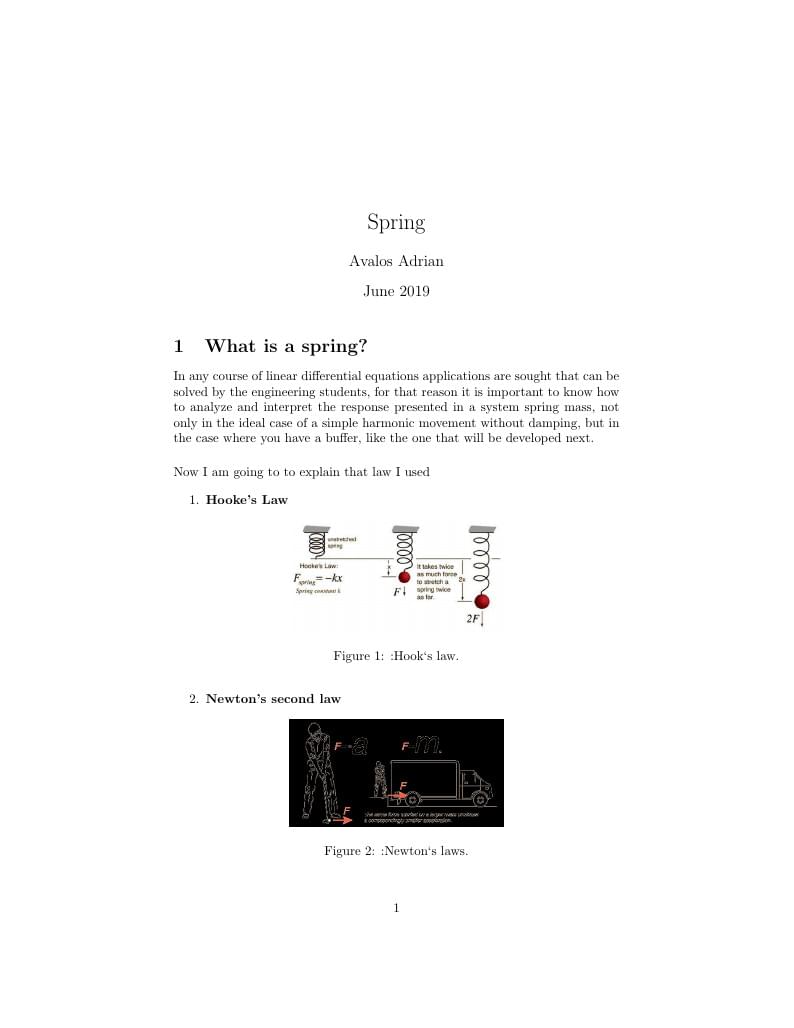
Spring-Mass
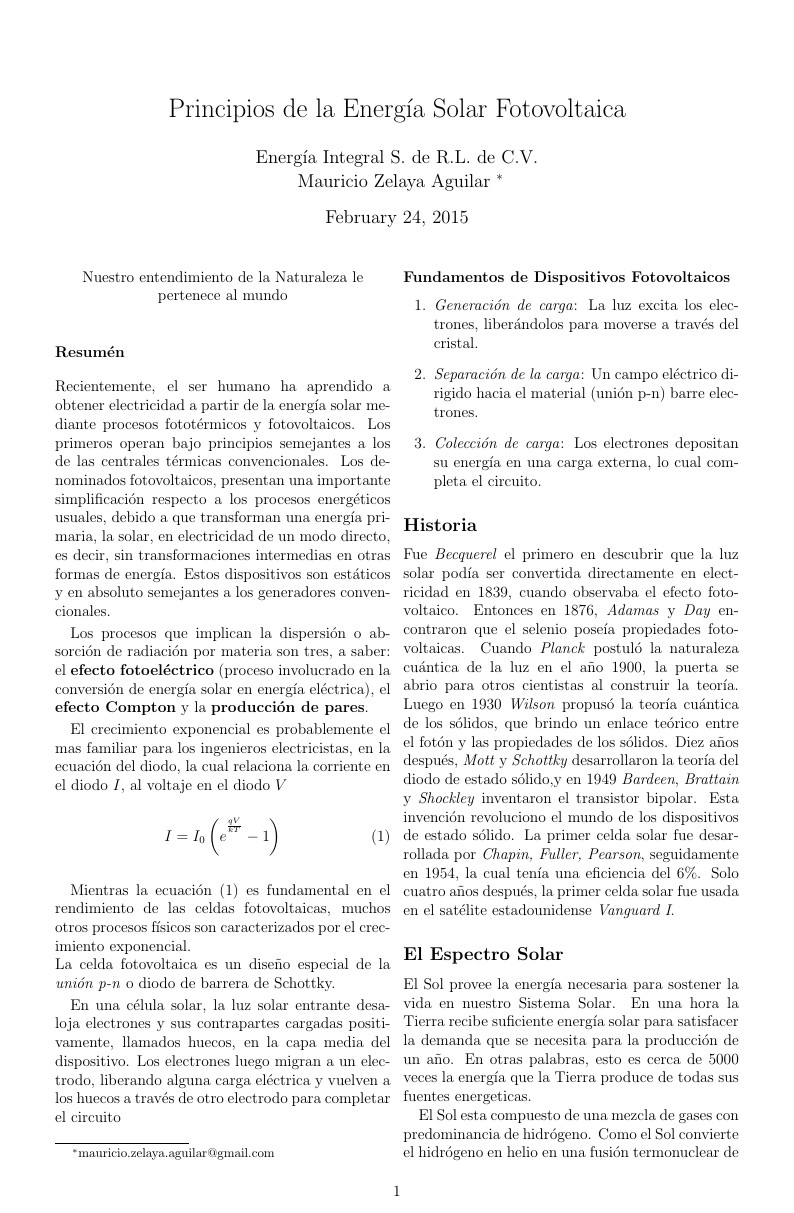
Recientemente, el ser humano ha aprendido a obtener electricidad a partir de la energía solar mediante procesos fototérmicos y fotovoltaicos. Los primeros operan bajo principios semejantes a los de las centrales térmicas convencionales. Los denominados fotovoltaicos, presentan una importante simplificación respecto a los procesos energéticos usuales, debido a que transforman una energía primaria, la solar, en electricidad de un modo directo, es decir, sin transformaciones intermedias en otras formas de energía. Estos dispositivos son estáticos y en absoluto semejantes a las generadores convencionales. Los procesos que implican la dispersión o absorción de radiación por materia son tres, a saber: el \textbf{efecto fotoeléctrico} (proceso involucrado en la conversión de energía solar en energía eléctrica), el \textbf{efecto Compton} y la \textbf{producción de pares}. El crecimiento exponencial es probablemente el mas familiar para los ingenieros electricistas, en la ecuación del diodo, la cual relaciona la corriente en el diodo $I$, al voltaje en el diodo $V$ \begin{equation}\label{eq:1} I=I_0\left(e^{\frac{qV}{kT}}-1\right) \end{equation} Mientras la ecuación \eqref{eq:1} es fundamental en el rendimiento de las celdas fotovoltaicas, muchos otros procesos físicos son caracterizados por el crecimiento exponencial.\\ La celda fotovoltaica es un diseño especial de la \textit{unión p-n} o diodo de barrera de Schottky. En una célula solar, la luz solar entrante desaloja electrones y sus contrapartes cargadas positivamente, llamados huecos, en la capa media del dispositivo. Los electrones luego migran a un electrodo, liberando alguna carga eléctrica y vuelven a los huecos a través de otro electrodo para completar el circuito \subsubsection*{Fundamentos de Dispositivos Fotovoltaicos} \begin{enumerate} \item \textit{Generación de carga}: La luz excita los electrones, liberándolos para moverse a través del cristal. \item \textit{Separación de la carga}: Un campo eléctrico dirigido hacia el material (unión p-n) barre electrones. \item \textit{Colección de carga}: Los electrones depositan su energía en una carga externa, lo cual completa el circuito. \end{enumerate}
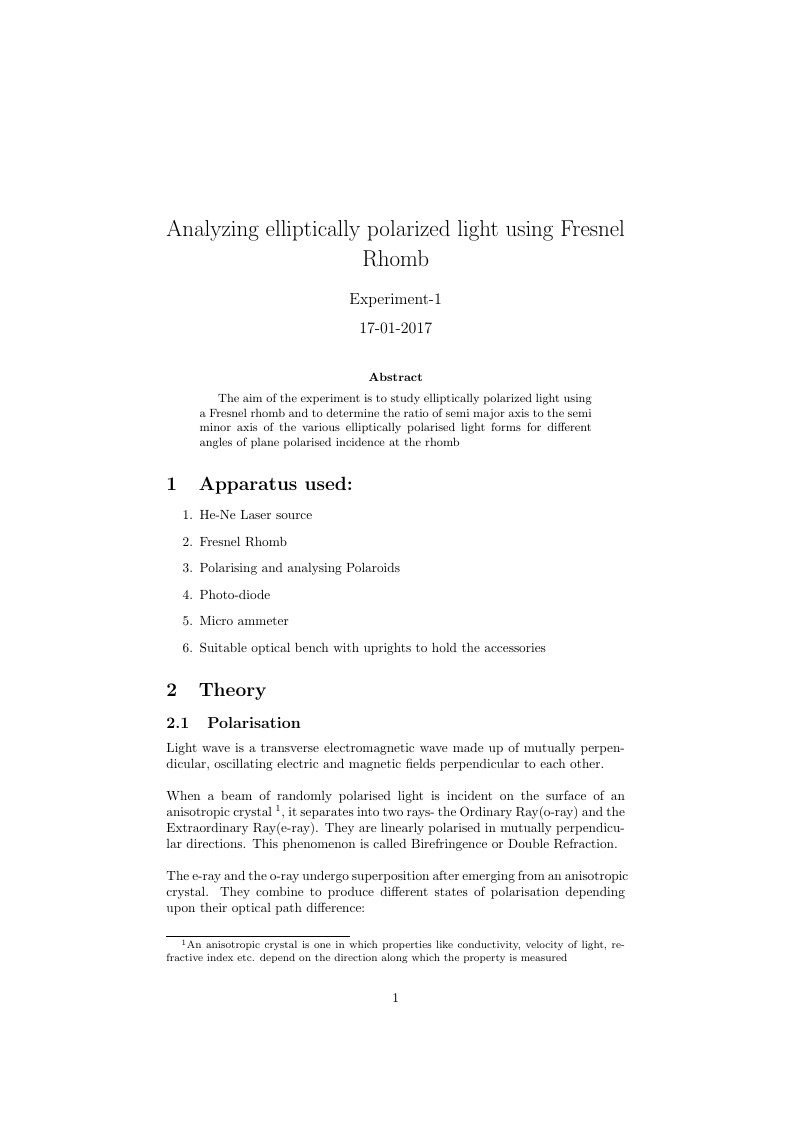
The aim of the experiment is to study elliptically polarized light using a Fresnel rhomb and to determine the ratio of semi major axis to the semi minor axis of the various elliptically polarised light forms for different angles of plane polarised incidence at the rhomb
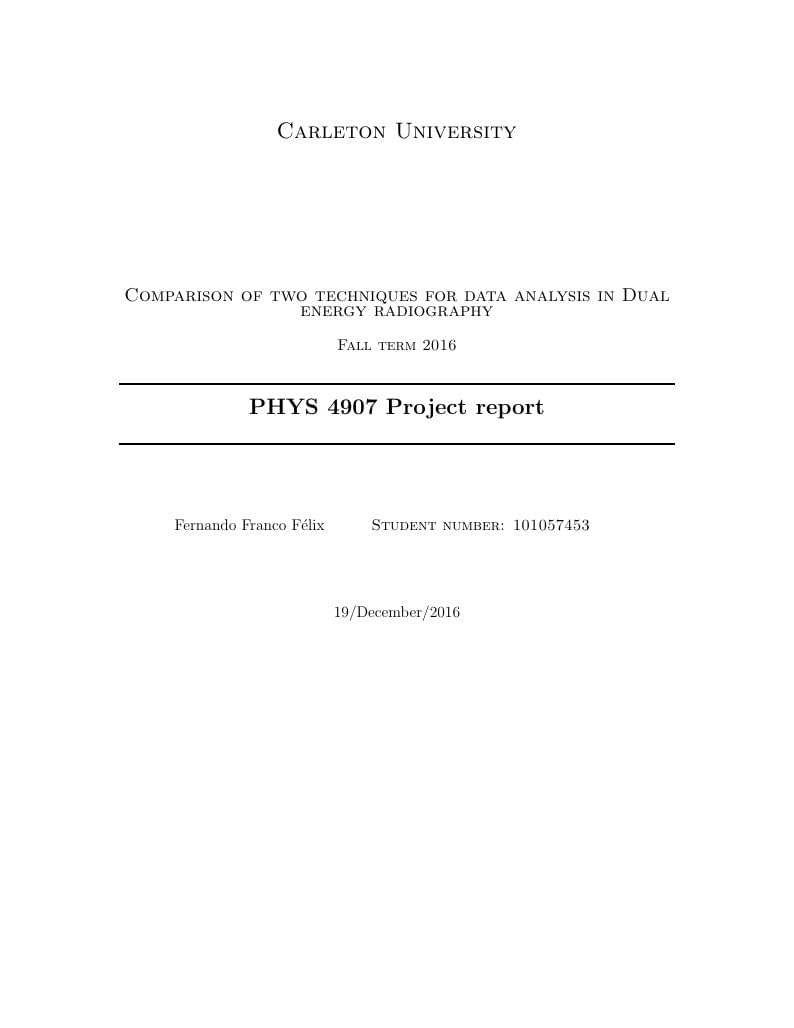
A dual energy radiography method using basis decomposition was developed, the process to do it is shown and it is compared against an alternate more direct method of analyzing the data using the logarithm of the original data, concluding that this second method does work but it is not better than basis decomposition.
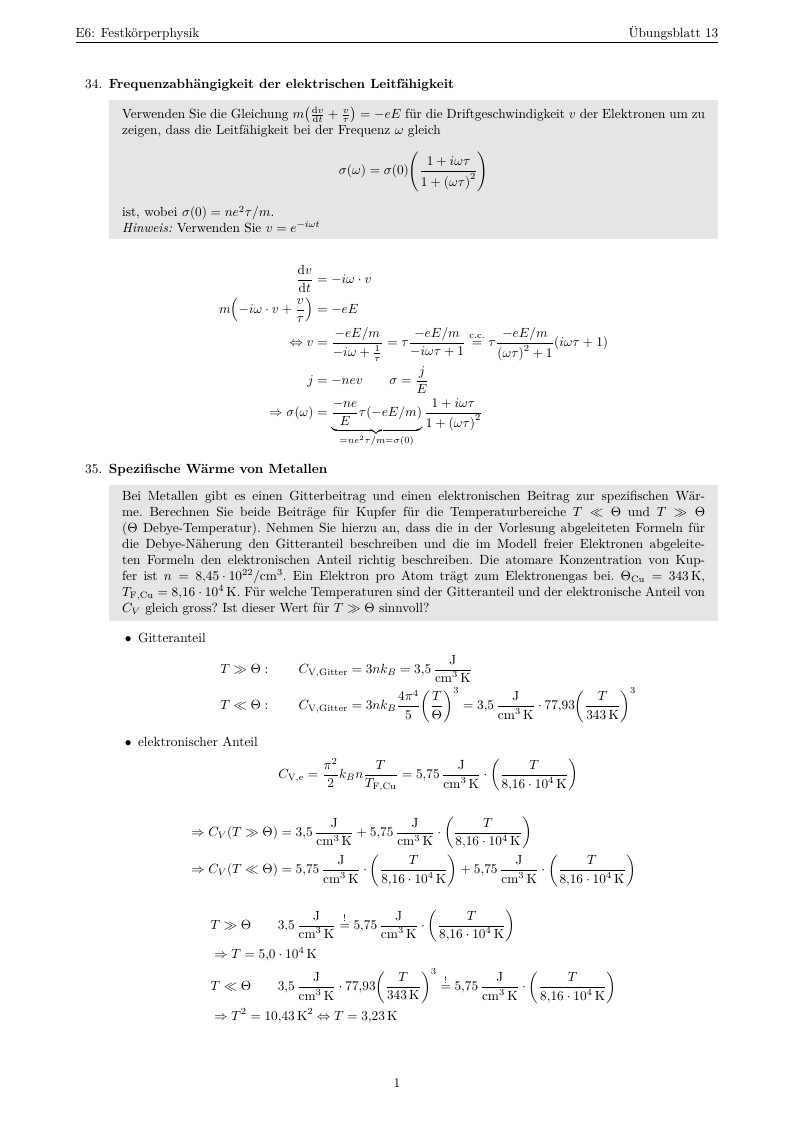
Experimentalphysik 6: Festkörperphysik
\begin
Discover why over 25 million people worldwide trust Overleaf with their work.